I remember sitting in study hall one day during my senior year of high school, speaking in hushed tones with a couple of friends about a band that was just starting to rear its spike-haired head on the pages of Circus and Creem magazines: The Sex Pistols. Who were they? Or rather, what were they? In the early months of 1977, no one outside a small circle of die-hard British fans had even heard their music. The band’s first single, “God Save the Queen,” and sole studio album, “Never Mind the Bollocks, Here’s the Sex Pistols,” were months away from release; most retail outlets would refuse to even stock the records. But the band had already generated quite a buzz with their nihilistic antics. They dropped F Bombs on British television; sported obscene, safety-pinned clothes and asylum haircuts; wrote songs that celebrated anarchy and condemned the Royal Family; and brawled with fans who drenched them in spit during shows. Within a few short months of their first performance their reputations were already preceding them. Nervous club owners cancelled shows for fear of violent outbursts. Hell, this was too wild to be true! I figured they were just a gimmick — a bunch of spotty-faced boys trying to out-Iggy Iggy Pop. Little did I imagine that within one year they’d be launching their first and only U.S tour in Homestead, PA, a historic, rapidly decaying steelmaking mecca a few miles from the Pittsburgh city line.
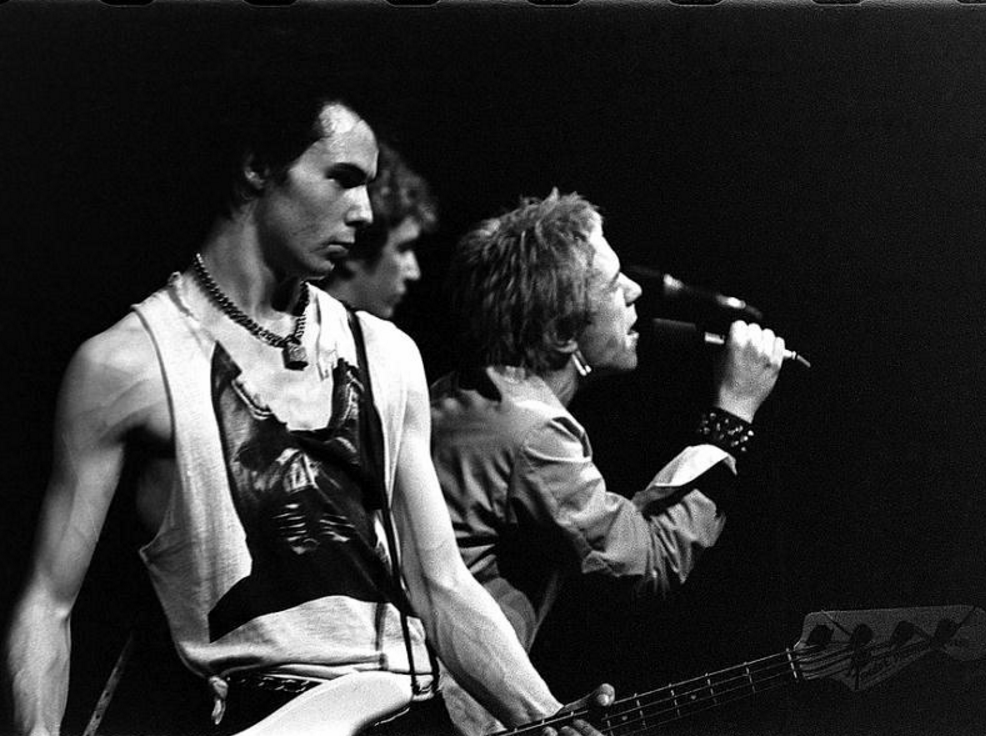 The Pistols’ manager Malcolm McLaren could have debuted his band at a place like New York’s grungy CBGBs, where they would have been welcomed by the type of rock fans and music writers already accustomed to punk acts like The Ramones, The Dead Boys, and other raw, edgy artists. But McLaren, a visual artist, clothing designer and boutique owner with scant music industry experience, always chose controversy over convention. His strategy was to book the Pistols into small clubs in the types of U.S. cities where he reckoned fans of traditional FM-radio rock were bound to dislike the profane, mocking punks. The more bottles, beer cans, bar food, and mucous hurled at the band, the better. The crucial figure in this scenario was McLaren’s pet Pistol John Simon Ritchie, a somewhat shy, polite boy who devolved into the stage menace known as Sid Vicious when he joined the group as a replacement bass player in early 1977 (it’s rumored he learned to play the instrument during one all-night practice marathon). Singer Johnny Rotten (John Lydon) was a sneering, flailing, wild-eyed frontman in the style of a performance artist. His bark was worse than his bite. Lead guitarist Steve Jones and drummer Paul Cook were competent musicians who wanted to be taken seriously. But it was the heroin-fueled, ready-to-rumble Sid that McLaren would count on to generate headlines and earn them all a place in rock history.
The Pistols’ manager Malcolm McLaren could have debuted his band at a place like New York’s grungy CBGBs, where they would have been welcomed by the type of rock fans and music writers already accustomed to punk acts like The Ramones, The Dead Boys, and other raw, edgy artists. But McLaren, a visual artist, clothing designer and boutique owner with scant music industry experience, always chose controversy over convention. His strategy was to book the Pistols into small clubs in the types of U.S. cities where he reckoned fans of traditional FM-radio rock were bound to dislike the profane, mocking punks. The more bottles, beer cans, bar food, and mucous hurled at the band, the better. The crucial figure in this scenario was McLaren’s pet Pistol John Simon Ritchie, a somewhat shy, polite boy who devolved into the stage menace known as Sid Vicious when he joined the group as a replacement bass player in early 1977 (it’s rumored he learned to play the instrument during one all-night practice marathon). Singer Johnny Rotten (John Lydon) was a sneering, flailing, wild-eyed frontman in the style of a performance artist. His bark was worse than his bite. Lead guitarist Steve Jones and drummer Paul Cook were competent musicians who wanted to be taken seriously. But it was the heroin-fueled, ready-to-rumble Sid that McLaren would count on to generate headlines and earn them all a place in rock history.
In John Savage’s excellent book England’s Dreaming: Anarchy, Sex Pistols, Punk Rock and Beyond, he explains: “The Sex Pistols were to swing through the Deep South that McLaren found so romantic in early 1975. There they would be playing to ‘real people’ in a situation that would ensure fresh confrontation.” In short, he wanted to shake people out of their long, monotonous classic-rock comas, and he had just the right cast of characters to carry out his mission.
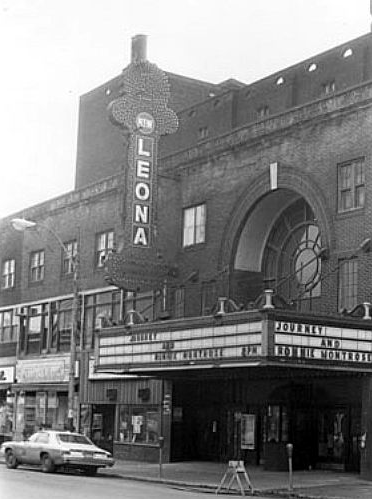 Why McLaren chose Homestead, PA, as the place to unleash his Sex Pistols on U.S. soil is anybody’s guess. As a Pittsburgher, I assure you that our region, north of the Mason-Dixon line, is far from the Deep South and hardly the type of area too conservative to turn away a provocative act. (Wild-child Iggy played here in March 1977, with David Bowie in his backup band.) Maybe Pittsburgh’s industrial reputation pegged it as dull, out-of-step, and rife with blue-collar, shot-and-a-beer head-bangers. Or maybe McLaren found an open venue that fit his schedule and booked it, plain and simple. But, the venue he chose was anything but plain and simple. The Leona Theater, on the main drag of the bustling steel town, opened in 1925 as Stahl’s Million Dollar Theater. For generations it offered a grand setting for first run movies, vaudeville performances, early doo-wop and rock-n-roll revues, jazz concerts, folk and country performances, dance marathons, and boxing matches. In 1974 it was renamed the New Leona Concert Hall and became a popular venue for such up-and-coming artists as Elvis Costello, Blondie, Meatloaf, the aforementioned Iggy Pop, Southside Johnny and the Asbury Jukes, and Patti Smith, who would be the last person to perform there — in July 1978 (Pittsburgh’s Iron City Houserockers opened for her). The rowdy Pistols and their fans might have done some damage to the place, but it would have made little difference at that time. Within a few years Homestead would be ranked as one of the most economically distressed cities in America, and the theater would be demolished.
Why McLaren chose Homestead, PA, as the place to unleash his Sex Pistols on U.S. soil is anybody’s guess. As a Pittsburgher, I assure you that our region, north of the Mason-Dixon line, is far from the Deep South and hardly the type of area too conservative to turn away a provocative act. (Wild-child Iggy played here in March 1977, with David Bowie in his backup band.) Maybe Pittsburgh’s industrial reputation pegged it as dull, out-of-step, and rife with blue-collar, shot-and-a-beer head-bangers. Or maybe McLaren found an open venue that fit his schedule and booked it, plain and simple. But, the venue he chose was anything but plain and simple. The Leona Theater, on the main drag of the bustling steel town, opened in 1925 as Stahl’s Million Dollar Theater. For generations it offered a grand setting for first run movies, vaudeville performances, early doo-wop and rock-n-roll revues, jazz concerts, folk and country performances, dance marathons, and boxing matches. In 1974 it was renamed the New Leona Concert Hall and became a popular venue for such up-and-coming artists as Elvis Costello, Blondie, Meatloaf, the aforementioned Iggy Pop, Southside Johnny and the Asbury Jukes, and Patti Smith, who would be the last person to perform there — in July 1978 (Pittsburgh’s Iron City Houserockers opened for her). The rowdy Pistols and their fans might have done some damage to the place, but it would have made little difference at that time. Within a few years Homestead would be ranked as one of the most economically distressed cities in America, and the theater would be demolished.
But back to the tour. Plans began to go awry right from the start when authorities refused to issue visas to several band members with criminal records. This threatened to delay their departure from the U.K. Pittsburghers hoping to have the distinction of being the first Americans to witness the notorious Sex Pistols – on December 28, 1977 – started fearing the worst when concert promoter Danny Kresky Enterprises issued a second set of tickets stamped with December 29. Soon, the Leona Theater marquee was advertising a December 30 show.
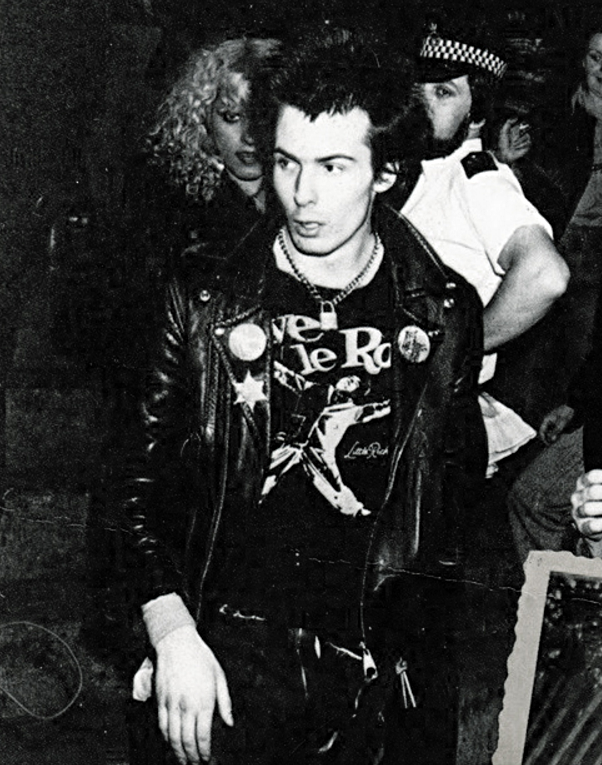 In the end, the visa delay caused the Pistols to cancel the Pittsburgh concert and the following shows in Cleveland, Chicago, and Alexandria, Virginia. The two-week 1978 tour would kick off with a lackluster performance in Atlanta, and move on to Memphis, San Antonio, Baton Rouge, Tulsa, and Dallas (where Sid appeared on stage with the words “Gimme a fix” carved into his chest with a razor blade.) The entire tour was plagued by problems stemming from the band members’ infighting, their frustrations with an absentee McLaren, altercations with audiences, and Sid’s increasing drug use. They closed their tour at San Francisco’s Winterland Ballroom on January 14, with Johnny Rotten’s final words onstage as a Sex Pistol: “Ever get the feeling you’ve been cheated?” He quit the band the following day. After a tumultuous two-and-a-half-year run, The Pistols were now smoking guns; their impact as rock innovators and punk style icons would prove to be significant.
In the end, the visa delay caused the Pistols to cancel the Pittsburgh concert and the following shows in Cleveland, Chicago, and Alexandria, Virginia. The two-week 1978 tour would kick off with a lackluster performance in Atlanta, and move on to Memphis, San Antonio, Baton Rouge, Tulsa, and Dallas (where Sid appeared on stage with the words “Gimme a fix” carved into his chest with a razor blade.) The entire tour was plagued by problems stemming from the band members’ infighting, their frustrations with an absentee McLaren, altercations with audiences, and Sid’s increasing drug use. They closed their tour at San Francisco’s Winterland Ballroom on January 14, with Johnny Rotten’s final words onstage as a Sex Pistol: “Ever get the feeling you’ve been cheated?” He quit the band the following day. After a tumultuous two-and-a-half-year run, The Pistols were now smoking guns; their impact as rock innovators and punk style icons would prove to be significant.
Within a year of the breakup Johnny Rotten reverted back to John Lydon and formed Public Image Ltd. (PiL). He still tours with the band, has hosted or appeared as a guest on numerous TV shows, wrote two memoirs, and has become an eccentric celebrity of sorts. Steve Jones and Paul Cook have enjoyed decades of success in the music business, touring and recording with various artists.
But it’s Sid who will forever be the poster boy of punk, based on nothing more than bravado, a carefully crafted appearance, and the fact that he overdosed on heroin supplied by his own mother after allegedly killing Nancy Spungen with a hunting knife at the Chelsea Hotel in October 1978. He was 21. His druggy paramour was 20. Death…it’s a great career move.
Looking back, I think the Sex Pistols would have loved Homestead. They would have felt right at home in the midst of the encroaching urban decay so reminiscent of the London streets from whence they came…the same streets that spawned a generation of disenfranchised English kids who found an outlet and identity through punk music and fashion.
Here’s a look at The Pistols, in all their filth and fury. This footage was shot at Randy’s Rodeo in San Antonio, Texas, on January 8, 1978.
© Dana Spiardi, December 29, 2015

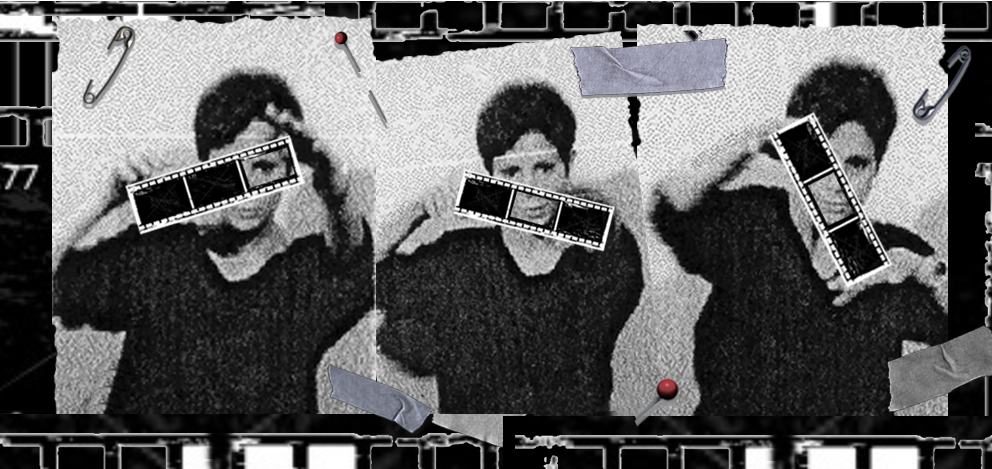
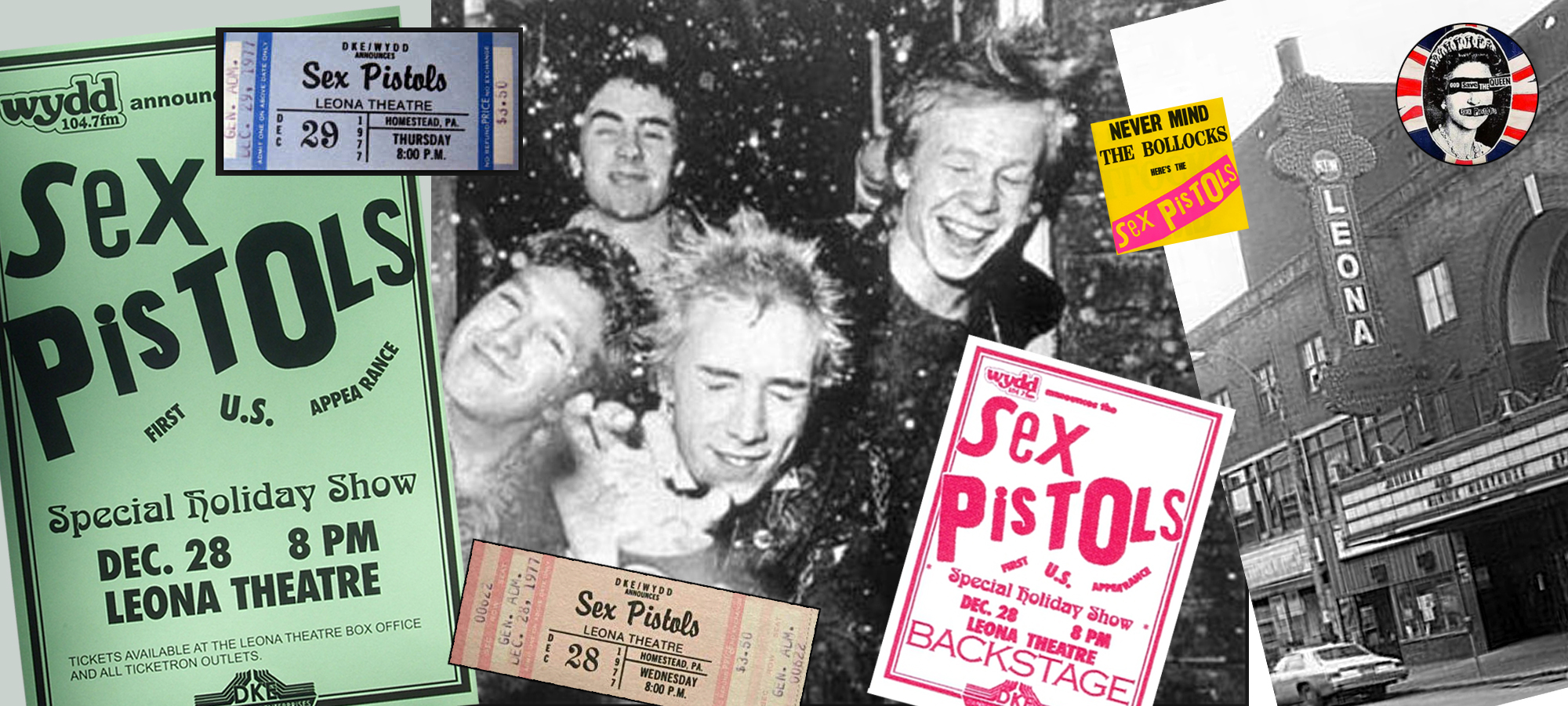
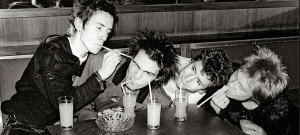
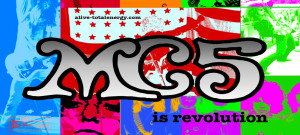
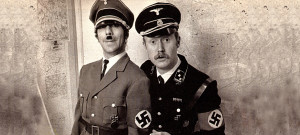
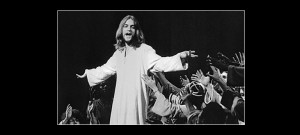
Homestead 1978 and the Sex Pistols, definitely a good fit. God save the Queen, and The Homestead Works, US Steel.